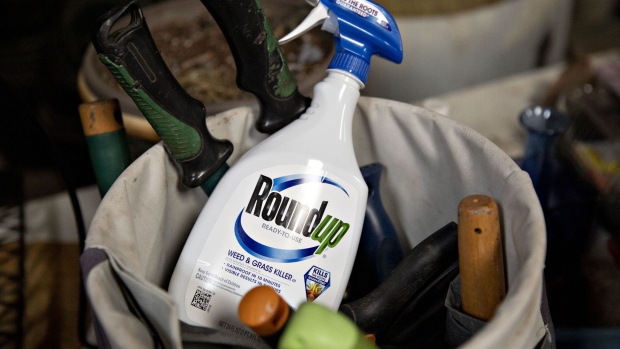May 10, 2022
Biden’s DOJ Urges Supreme Court to Reject Bayer Roundup Appeal
, Bloomberg News

(Bloomberg) -- The Biden administration urged the U.S. Supreme Court to reject Bayer AG’s bid to stop potentially billions of dollars in claims that its top-selling Roundup weedkiller causes cancer.
Bayer is challenging a $25 million award to Edwin Hardeman, a California man who says decades of exposure to Roundup caused his non-Hodgkin’s lymphoma. Bayer argues that federal approval of Roundup’s label meant Hardeman’s suit -- and others like it -- couldn’t go forward.
The administration sided with Hardeman in a brief filed with the court on Tuesday.
The litigation is a test case for what ultimately could be tens of thousands of claims. A Supreme Court victory would save Bayer an estimated $3 billion from the $16 billion the company has set aside, according to Bloomberg Intelligence analyst Holly Froum.
In July, Bayer said a Supreme Court ruling in its favor would “effectively and largely end” Roundup litigation in the U.S., while setting aside $4.5 billion in case the court rejected the appeal. Under the court’s normal scheduling practices, the justices probably will say before their term ends in late June or early July whether they will hear the case.
The Supreme Court in December sought input from U.S. Solicitor General Elizabeth Prelogar, the Biden administration’s top courtroom lawyer.
Hardeman says he used Roundup from the 1980s to 2012 on his large plot of land in Sonoma County, about 60 miles (100 kilometers) north of San Francisco. He was diagnosed with lymphoma in 2015.
He sued under California law, claiming that Monsanto’s failure to warn of Roundup’s carcinogenic risk caused his illness. Jurors awarded him more than $80 million, later cut by the trial judge to $25 million. A federal appeals court upheld the award.
At the Supreme Court, Bayer argues that Federal Insecticide, Fungicide, and Rodenticide Act shields the company from liability. FIFRA, as the law is known, says states may not impose packaging or labeling requirements that are “in addition to or different from” those under the federal law.
Bayer also argued that the trial judge improperly allowed expert testimony that Roundup causes cancer. The company said the testimony was speculative.
Hardeman’s lawyers urged the Supreme Court not to hear the case. They say the award is consistent with a 2005 Supreme Court ruling that allowed state-law suits as long as the state warning requirements are “genuinely equivalent” to those under FIFRA.
The case is Monsanto v. Hardeman, 21-241.
©2022 Bloomberg L.P.


